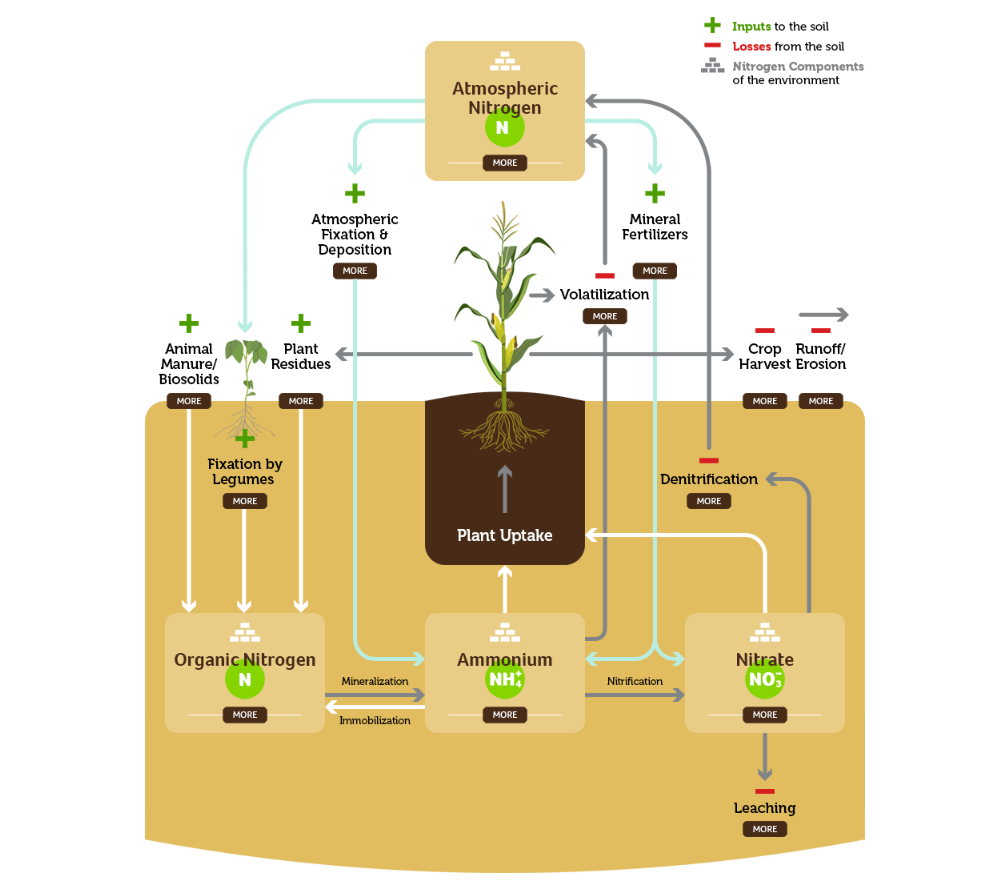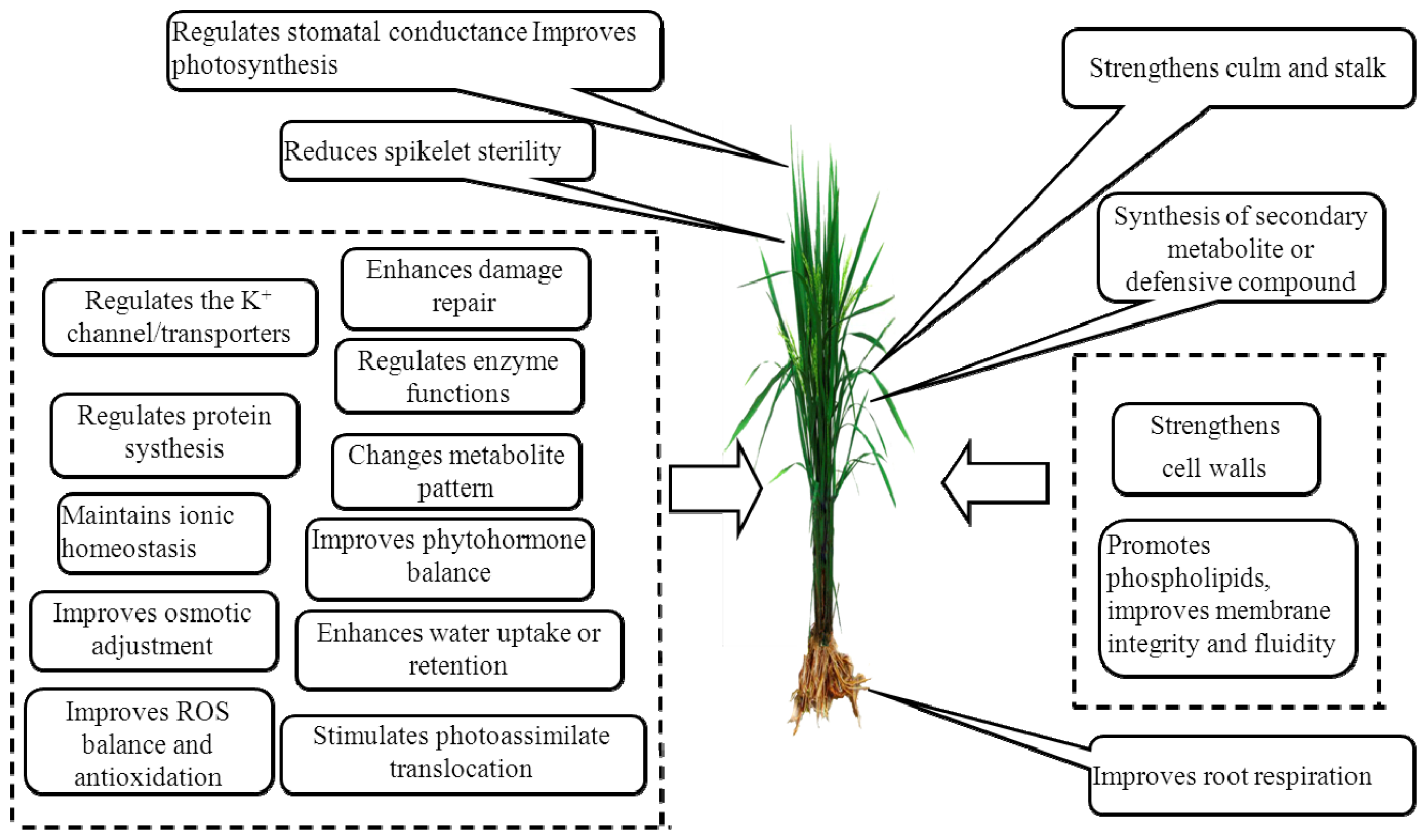The Npk Trio: What You Need To Know About Nitrogen Phosphorus And Potassium
The NPK Trio: What You Need to Know About Nitrogen Phosphorus and Potassium
Nitrogen, phosphorus, and potassium (NPK) are the three primary nutrients that plants need to grow and thrive. They are often referred to as the "Big 3" nutrients, and they are essential for all plant growth.
Nitrogen is responsible for the growth of green leaves and stems. It is also involved in the production of chlorophyll, the green pigment that allows plants to photosynthesize. Nitrogen-rich plants are often lush and leafy, with a deep green color.
Phosphorus is important for the development of roots, flowers, and fruits. It is also involved in energy production and the transport of nutrients within the plant. Phosphorus-rich plants tend to have strong root systems and produce more flowers and fruits.
Potassium helps plants to regulate water balance, resist disease, and tolerate stress. It is also involved in the production of carbohydrates and proteins. Potassium-rich plants are often healthy and vigorous, with a good resistance to pests and diseases.
The NPK ratios in fertilizers vary depending on the type of plant and the stage of growth. For example, young plants that are actively growing need more nitrogen than mature plants. Flowering plants need more phosphorus than other types of plants.
It is important to test your soil before you fertilize to determine the nutrient deficiencies that your plants may have. You can do this by sending a soil sample to a local laboratory. Once you know what nutrients your plants need, you can choose a fertilizer that contains the appropriate NPK ratio.
Fertilizers can be applied to plants in a variety of ways, including:
- Broadcast application: This is the simplest method of applying fertilizer. Simply spread the fertilizer evenly over the soil surface.
- Side-dressing: This method involves applying fertilizer to the soil near the base of the plant. This is a good way to fertilize plants that are already growing.
- Banding: This method involves applying fertilizer in a band along the plant's row. This is a good way to fertilize plants that are newly planted.
Fertilizers should be applied according to the instructions on the package. It is important not to over-fertilize plants, as this can damage their roots and leaves.
By understanding the importance of NPK nutrients, you can help your plants to grow healthy and strong. With proper fertilization, your plants will be able to reach their full potential and produce beautiful flowers, fruits, and vegetables.
Nitrogen, phosphorus, and potassium (NPK) are the three essential macronutrients that plants need to grow and thrive. Nitrogen helps plants produce leaves, phosphorus helps them produce roots and flowers, and potassium helps them resist disease and pests.
If you're looking to improve the health and productivity of your plants, it's important to make sure they're getting the right amount of NPK. The amount of each nutrient that your plants need will vary depending on the type of plant, the soil conditions, and the climate.
To find out how much NPK your plants need, you can consult a soil test or a plant fertilizer guide. Once you know how much NPK your plants need, you can choose a fertilizer that contains the right proportions of these nutrients.
There are many different types of fertilizers available, so it's important to choose one that is appropriate for your plants and your needs. You can find fertilizers at most garden centers and home improvement stores.
If you're looking for more information about NPK, I recommend visiting Garden Wiki. This website has a wealth of information about NPK, including articles, videos, and a fertilizer calculator.
FAQ of nitrogen phosphorus and potassium
- What are nitrogen, phosphorus, and potassium?
Nitrogen (N), phosphorus (P), and potassium (K) are the three primary nutrients that plants need to grow and thrive. Nitrogen is responsible for leaf growth and green color, phosphorus is important for root development and flowering, and potassium helps plants resist stress and disease.
- What are the symptoms of NPK deficiency?
A plant that is deficient in nitrogen will have pale green or yellow leaves, and may also have stunted growth. A plant that is deficient in phosphorus will have purple or red leaves, and may also have slow growth and poor flowering. A plant that is deficient in potassium will have wilting leaves, and may also be more susceptible to disease.
- How much NPK do plants need?
The amount of NPK that a plant needs will vary depending on the type of plant, the soil conditions, and the climate. In general, most plants need a balanced fertilizer that contains equal amounts of nitrogen, phosphorus, and potassium. However, some plants may need more of one nutrient than the others. For example, tomatoes need more phosphorus than most other plants, while citrus trees need more potassium.
- How often should I fertilize my plants?
The frequency of fertilization will also vary depending on the type of plant and the soil conditions. In general, most plants should be fertilized every 4-6 weeks during the growing season. However, some plants may need to be fertilized more often, such as tomatoes and citrus trees.
- What are the different types of NPK fertilizers?
There are many different types of NPK fertilizers available, including organic and inorganic fertilizers. Organic fertilizers are made from natural materials, such as manure, bone meal, and fish emulsion. Inorganic fertilizers are made from synthetic chemicals. Both organic and inorganic fertilizers can be effective, but organic fertilizers are generally considered to be more beneficial for the environment.
Image of nitrogen phosphorus and potassium
Here are 5 different images of "nitrogen phosphorus and potassium" from Pinterest:
Nitrogen is essential for plant growth and development. It helps plants produce chlorophyll, which gives them their green color. Nitrogen is also important for the production of proteins and other essential plant compounds.
Phosphorus is essential for plant growth and reproduction. It helps plants produce energy, store food, and form roots and flowers. Phosphorus is also important for the development of strong cell walls.
Potassium is essential for plant growth and health. It helps plants regulate water balance, produce carbohydrates, and resist pests and diseases. Potassium is also important for the production of strong stems and healthy leaves.



Post a Comment for "The Npk Trio: What You Need To Know About Nitrogen Phosphorus And Potassium"